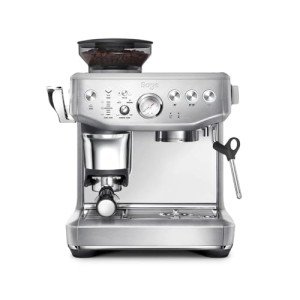Home Use Espresso Machines: A Comprehensive Guide
Espresso machines have become a staple in numerous homes as coffee lovers seek to reproduce café-quality brews in the convenience of their kitchen areas. The rise in appeal has caused a varied market filled with various models, features, and rates. This post intends to supply a useful overview of home use espresso machines, assisting readers navigate their choices efficiently.
Comprehending Espresso Machines
Espresso machines work by forcing warm water through finely-ground coffee under high pressure, leading to a concentrated coffee drink understood as espresso. There are several types of espresso machines classified based on their brewing techniques and level of automation. The most common types include:
- Manual Espresso Machines: These require the user to control the pressure and water circulation, permitting a more hands-on coffee-making experience.
- Semi-Automatic Espresso Machines: These provide automatic control over water pressure, while the user by hand grinds and tamps the coffee.
- Automatic Espresso Machines: With the push of a button, these machines instantly manage the circulation of water, making it easier to brew espresso with constant results.
- Super-Automatic Espresso Machines: These all-in-one machines handle grinding, tampering, brewing, and even milk frothing, making them perfect for users trying to find convenience.
- Pill or Pod Machines: These use pre-packaged coffee pods to develop espresso with minimal effort, but they limit choice in brewing strategies and tastes.
Table: Comparison of Espresso Machine Types
| Type | Control Level | Reduce of Use | Cleaning Level | Ideal For |
|---|---|---|---|---|
| Manual | User-controlled | Moderate | High | Coffee purists |
| Semi-Automatic | Partial automation | Moderate | Moderate | Home baristas |
| Automatic | Fully automated | Easy | Low | Hectic people |
| Super-Automatic | Completely automated | Very simple | Extremely low | Convenience candidates |
| Capsule/Pod | Fully automated | Really simple | Very low | Casual drinkers |
Key Features to Consider
When picking a home use espresso machine, it's important to think about numerous functions that can considerably affect the quality of espresso and user experience.
- Pressure: Look for machines that supply a minimum of 9 bars of pressure, as this is thought about optimal for developing espresso.
- Boiler Systems: Single vs. dual boiler systems figure out temperature level stability and the ability to brew espresso and steam milk concurrently.
- Grinder: Integrated mills enable freshly ground coffee, which boosts flavor. Consider machines with adjustable grind settings.
- Milk Frother: For those who enjoy cappuccinos and lattes, a built-in steam wand or automatic frother is essential.
- Size and Design: Consider your kitchen space and visual preferences. Machines can be found in different sizes, from compact to big setups.
- Rate: Home espresso machines can range from a couple of hundred to several thousand dollars, so it's crucial to develop a budget before exploring alternatives.
Advantages and disadvantages of Home Use Espresso Machines
| Pros | Cons |
|---|---|
| Benefit of brewing coffee at home | Preliminary investment can be high |
| Quality of espresso is often remarkable | Needs some skill, especially with manual machines |
| Ability to try out tastes | Maintenance and cleansing can be labor-intensive |
| Can conserve cash in the long run | Not all machines will fit every coffee choice |
Upkeep and Cleaning Tips
Preserving an espresso machine is crucial for lengthening its life and making sure constant brew quality. Here are some helpful pointers:
- Regular Descaling: Minerals from water can build up in the machine. Descale every 1-3 months, depending on water solidity.
- Daily Cleaning: Rinse portafilters, baskets, and steam wands after each use to prevent coffee oils from building residue.
- Use Filtered Water: This can help reduce mineral buildup and improve the taste of coffee.
- Change Gaskets and Seals: These components might break gradually and must be changed to preserve pressure and performance.
- Read the Manual: Each machine has specific care instructions; following these will guarantee durability.
FAQs About Home Use Espresso Machines
Q1: What is the very best budget espresso machine?The best budget espresso machine frequently depends upon individual requirements, however models like the DeLonghi EC155 or the Breville Bambino are popular among users for supplying fantastic worth. Q2: How long do home espresso machines generally last?With appropriate maintenance, home espresso machines can last anywhere from 5 to 15 years, depending upon the quality of the machine and frequency of use. Q3: Can I make coffees and lattes with any espresso machine?While most espresso machines can make coffees and lattes, having a trustworthy
steam wand or frother is essential for attaining the best milk texture.
Q4: Are super-automatic machines worth the investment?For those who focus on convenience and fast developing, super-automatic machines can be worth the financial investment, though they may do not have some customizability in brew strength and flavor. Q5: What kinds of coffee beans are best for espresso?While see this page plays a function, beans labeled as" espresso "blends are generally roasted darker, producing abundant tastes and a creamy texture when brewed.
Purchasing a home espresso machine can change the day-to-day coffee regimen into something unique, elevating home brews to café quality. By comprehending the different kinds of machines, essential functions to consider, maintenance requirements, and weighing the
pros and cons, consumers can make informed decisions that fit their specific choices. As the espresso culture continues to grow, no matter the choice, every brew can be a scrumptious experience waiting to be enjoyed.

